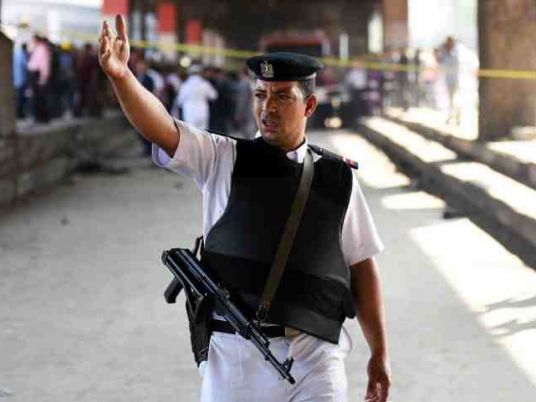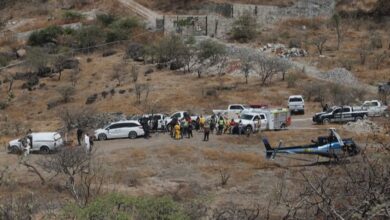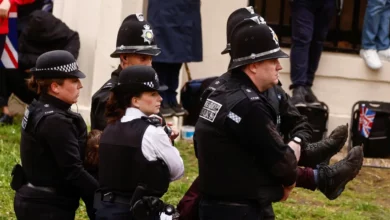An Egyptian Supreme State Security court on Wednesday sentenced 26 defendants who had been charged with membership in the Lebanese resistance group Hizbullah, conspiracy and terrorism charges.
Four of the indicted were given life sentences, while two were given 15-year prison sentences, and 15 received ten-year prison sentences. The rest were given between seven and six-month prison terms.
Four of the defendants were tried in absentia while the rest appeared in the dock, shouting “God is great!” and claiming that the court was working for the interests of “the state security of Israel” after hearing the final verdict in a trial that began less than a year earlier.
The defendants–including two Lebanese, five Palestinians, one Sudanese and 18 Egyptians–were found guilty of “collecting intelligence for the interest of a foreign entity, possessing explosive material, spying and plotting against interests in the Suez Canal, digging smuggling tunnels between Egypt and Gaza, and planning attacks against Israelis and against resorts popular with them.” They were arrested in November 2008.
When questioned in court, the defendants denied working against Egypt’s interests. They had pleaded not guilty, saying they were in Egypt to transfer weapons and material aid to Palestinian resistance forces inside the Gaza Strip.
On Wednesday, and before handing down the sentences, presiding judge Adel Abdel Salam Gomaa said in response to the claims: “Does supporting the Palestinian resistance include collecting information on Egyptian [interests] in the provinces of north and south Sinai, pinpointing tourist resorts [for attack], renting property overlooking the Suez Canal, making explosives and keeping them with [one of the defendants] in the province of North Sinai?”
He added that the group had intended to harm the Egyptian economy or “sever the veins” of its people. “These men have dared to question what Egypt has done for the Palestinian people,” the judge said.
In the dock, and after the judge’s speech, several of the defendants cried out “Shame on you!” in addition to shouting slogans about Jerusalem.
In past sessions, state security prosecutors had asked for death sentences for six of the defendants, charging them with espionage and treason as well as receiving aid not only from Hizbullah but also from Iran.
What is now know as the “Hizbullah cell trial” featured a strong presence from the press and beefed up security around the court as truckloads of riot police, armored vehicles and checkpoints around the court.
Local and international rights watchdogs have repeatedly accused Egypt’s emergency courts of lacking the basic standards for a fair trial. No appeals are allowed in verdicts issued by the supreme emergency state security courts. Only the president can overturn a verdict and order a retrial.




